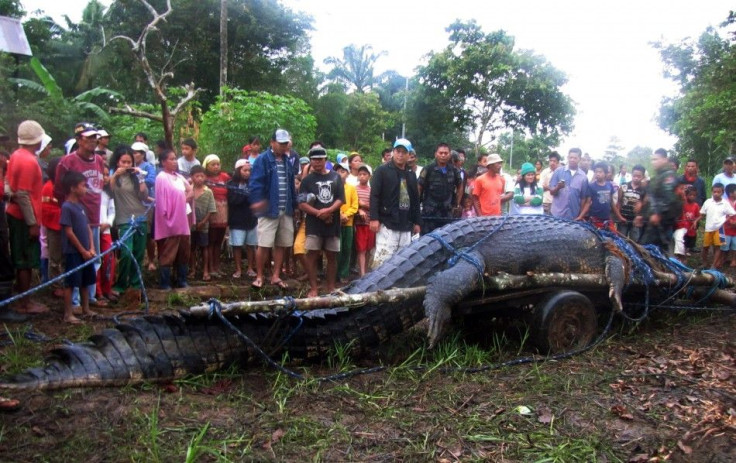Crocodile Snatches 10-Year-Old From Boat In Philippines' 'Last Frontier'

A 10-year-old Filipino boy’s partially eaten remains were found late Monday by a fisherman in a mangrove swamp in the southern Philippines. This comes one day after a saltwater crocodile snatched him from a small boat carrying him and two of his siblings.
And once again, the issue of rampant, unchecked development for the benefit of humans clashing with the shrinking natural habitat of the large reptiles has reared its ugly head.
Balabac is one of over 7,000 islands that form the Philippine archipelago and lies at the extreme western tip of the country as an extension of the Palawan province. It is about 100 km north of the East Malaysian island called Banggi with the South China Sea to the west and the Sulu Sea to the east. The area is home to rare indigenous plant and animals including the saltwater crocodile that can grow as large as 6 meters (20 ft) making it one of the world’s largest reptiles. Palawan has been called the Philippines' 'Last Frontier'.
This latest tragedy is just one of several where human-crocodile conflicts have resulted in the killing and maiming of people. Jovic Pabello, a spokesperson for a government council that works to conserve the environment of the Palawan island group said, "Since 2015, we've never had a year with zero (crocodile) attacks.” He described the attacks as "a conflict on water use."
In February a 12-year-old boy was grabbed by a crocodile as he swam in the Balabac river, but he managed to escape when his friends beat the animal’s head with oars until it released the boy. In another 2018 attack, a crab fisherman was killed and half-eaten by a saltwater crocodile just three months after his 12-year-old niece was dragged away and never seen again, presumably consumed by the large reptile.
The island’s natural beauty and unusual features like the pink sand beach of Comiran Island or the hidden waterfalls in the mountains make Balabac an ideal tourist destination. It is also a target for developers that without some restraint, raise fears of the area becoming a congested mess like other areas of the country. Scholars of the area’s terrestrial and marine ecosystems are pushing for the area to be included on a list for a UNESCO World Heritage Site nomination in hopes of preserving the island.
© Copyright IBTimes 2025. All rights reserved.





















